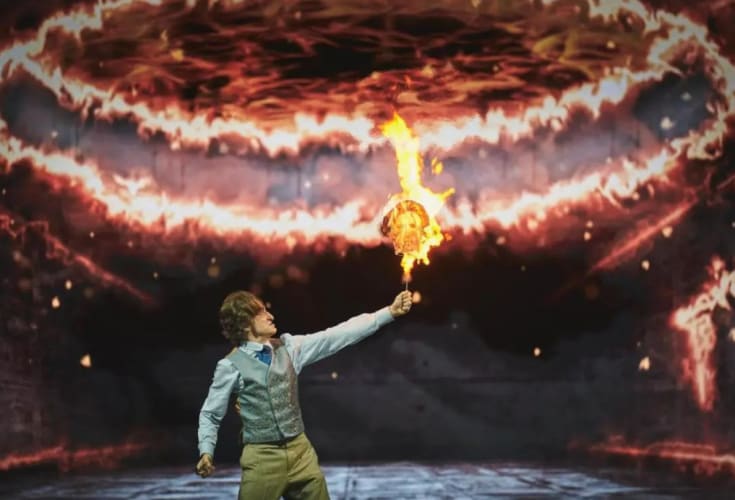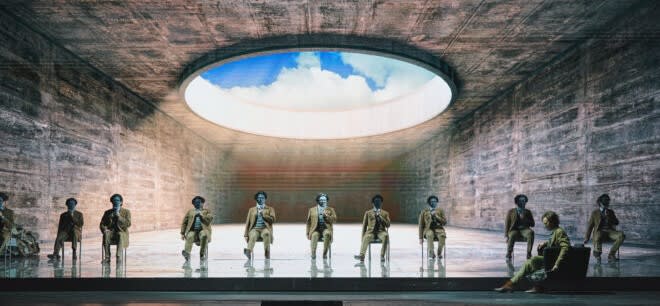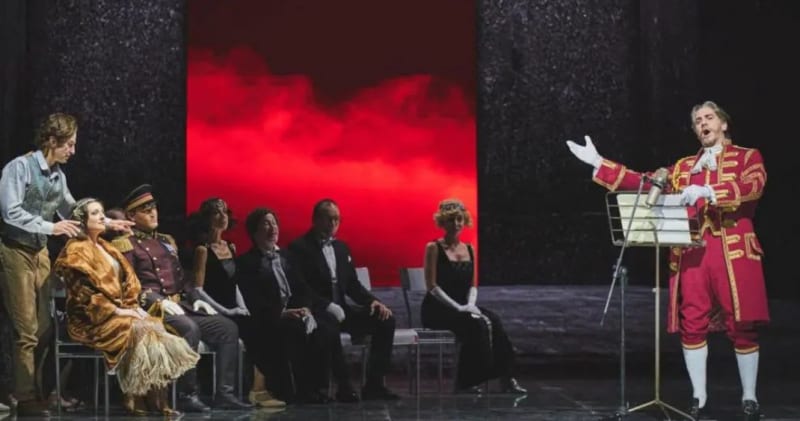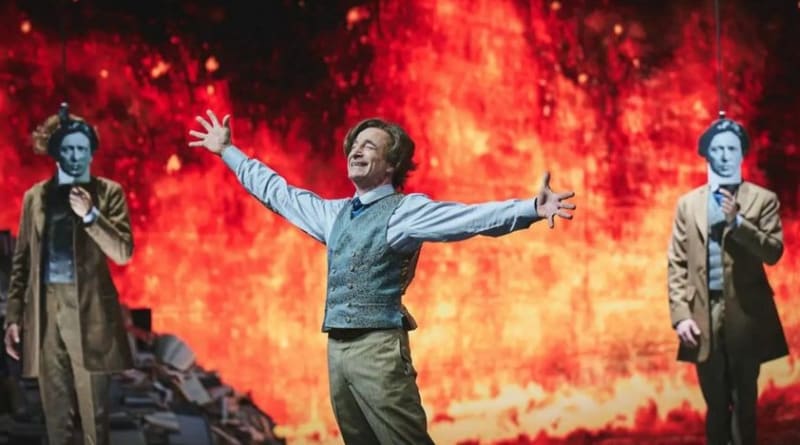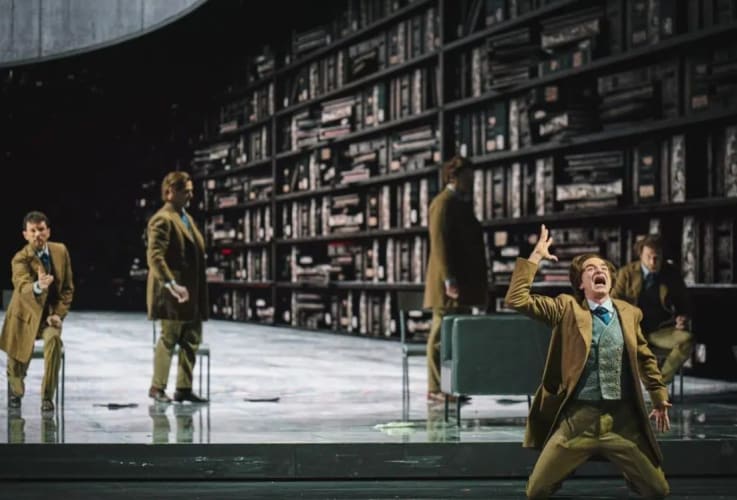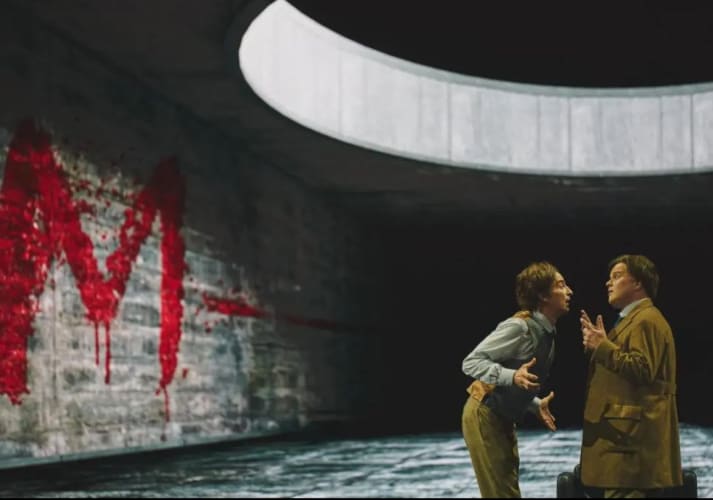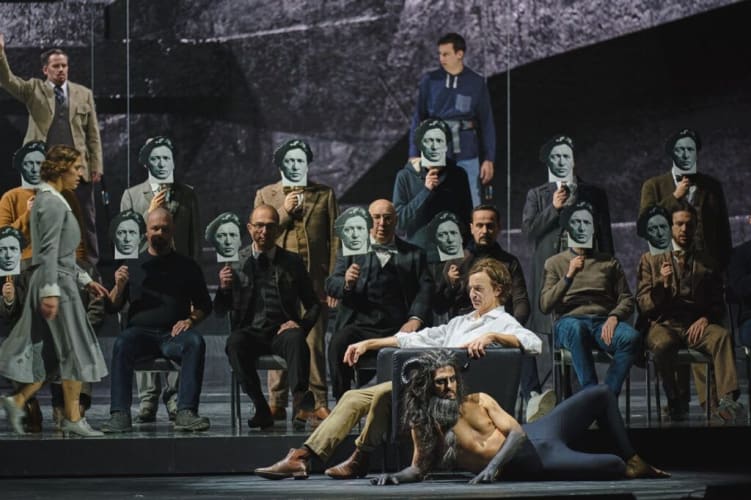The scientist, seeking ultimate knowledge, fills the heavens with the power of hell. No, I’m not talking about Oppenheimer, which days before the release of Doktor Faust scooped the Oscars.
Coincidental, but it was hard to ignore the similarity as Dietrich Henschel’s Faust draws upon his own black magic to summon the Devil and, in Davide Livermore’s startling production, turns the sky into flame.
Ferruccio Busoni regarded the opera as the apotheosis of his career, and laboured on it for 12 years, leaving it unfinished at his death in 1924. Although using some words from Goethe’s classic, the plot is different, based on a puppet play seen in Zurich, thus introducing more elements of the grotesque and fanciful.
Faust, lonely and dejected, is given an ancient book by three mysterious students. Mephistopheles appears and they set off on a dream journey that takes them first to a royal court, then the university town of Wittenberg. At the end, he is presented with the dead child of his liaison with the Duchess of Parma, but as he dies, his life is transferred to the body of the infant.
Livermore interprets the piece as a metaphor of the composer’s own unfulfilled ambition, Henschel sporting a lush Busoni-like forelock, and with up to 40 chorus members holding Busoni face masks. For much of the time, Gio Forma's dramatic set design features a giant hole above a reactor-like chamber as if indicating a world beyond.
The early 1920s yielded many of the century’s greatest operas, with works from Berg, Stravinsky, Prokofiev, Janacek and Puccini. Doktor Faust still sounds radical on its centenary, but has not taken its place among them. The lack of a prominent female character and the discontinuous plot may partly explain this, but for me, the major weakness is more fundamental.
Unlike Wagner, Busoni argued that words and music should fulfil separate functions, but the result is that there often seems an uncomfortable disjuncture between vocal lines and orchestra, particularly in the long prologue, as if singers and players were performing in two different operas. It is not helped here by an underpowered Henschel who lacks authority in the role. Could it be significant that the most successful writing for the baritone comes in his final monologue, which was left to others to finish?
Other performances are stronger. Tenor Daniel Brenna as Mephistopheles has such an angelic tone to make a case for re-admission to the other side, Joseph Dahdah comes closest to lyricism in the soldier's aria sung over solo organ accompaniment and Olga Bezsmertna as the Duchess ends her brief aria with exquisite pianissimi.
Elsewhere, I found the orchestral passages most appealing, including the Intermezzo before what is called the Main Action, and a delicate Sarabande. The separate paths of soloists and orchestra make the score one of the most complex to navigate, and at the conclusion, every member of the orchestra accordingly applauds conductor Cornelius Meister.
The only other video recording I know was of a Zurich production in 2006 with the impressive Thomas Hampson in the title role, previously streamed online, but this is the first available on disk, and for that reason may appeal to lovers of 20th century opera.
